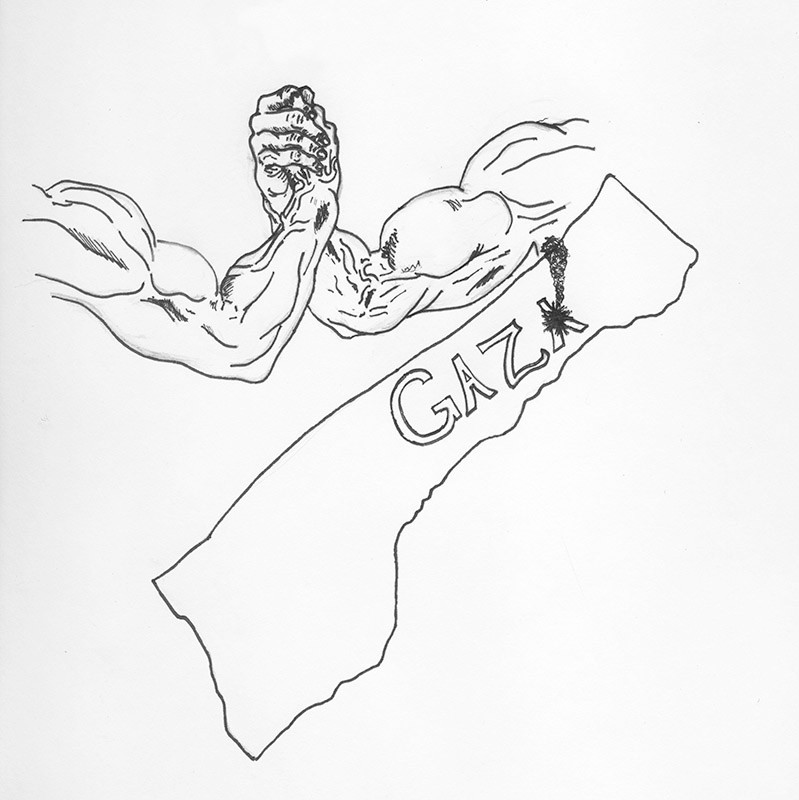Palestine under attack
Death toll rises as Israel continues abuses of Palestinians
By the time this piece is printed, there is no telling how many more Palestinian civilians will have been added to the death toll, how many more will be hospitalized, and how many more will have been left homeless.
A shaky truce between Hamas, the militant Islamist governing party of the Gaza strip, and the state of Israel, brokered by the Egyptian government was shattered the morning of Wednesday, Nov. 14 by an Israeli airstrike targeting Ahmad Jabari, head of the Ezzedine Al-Qassam brigades - Hamas’s military wing.
The two sides had agreed to a ceasefire following a weekend of increased hostilities between Palestinian resistance groups and the Israeli Defense Forces (IDF).
It was a stage similar to the one set in 2008; the Israeli military once again broke the ceasefire and launched a bombing campaign against the Palestinian people living in the Gaza strip.
Operation Cast Lead of 2008 was an aerial and ground assault that killed between 1,200 and 1,500 Palestinians, and 13 Israelis, the overwhelming majority of whom were civilians.
The death toll of Operation Cloud Pillar at the time of writing stands at 15 Palestinians, mostly civilians. An 11-month-old child is among the dead, and threats of a ground invasion to accompany the aerial assault abound.
The blood of Palestinians extends beyond the hands of the soldiers, military commanders and political forces within the state of Israel that ordered their murder.
It taints governments around the world who have pledged their unwavering support for the apartheid regime of Israel to continue its illegal practices with impunity on occupied Palestinian territory.
It stains the minds of those who refuse to acknowledge the military colonization and annexation of land undertaken by the Israeli government, and bleeds from the lips of those who would use their position of power to voice their support for the “right” of an occupational force to “defend” itself from a popular resistance that after 60 years of fighting refuses to die.
The president of the University of Winnipeg, Lloyd Axworthy, is acclaimed around the world for his important work during his time as Minister for Foreign Affairs in reshaping the nature of security as understood by states and international bodies.
Refocusing the discourse of security away from states and towards the individual, his work and thought has pushed the world to recognizing that every individual human being on this planet has the right to a certain quality of life, and that those basic qualities are to be protected by states, even when state governments are the actors responsible for committing atrocities against their own populations.
In the foyer of his office, Lloyd Axworthy has a picture of himself shaking hands with Benjamin Netanyahu, before the latter became Prime Minister of Israel.
It would be a small gesture on Axworthy’s behalf to take down the picture of a handshake from the man who ordered this recent offensive to the man who currently heads a university with an entire program dedicated to the study of human rights.
Take the picture down and replace it with a Palestinian flag.
There may be those that argue that Israel is simply acting in self-defence, that rockets fired at its civilian population require a response.
To them, we can respond that the Popular Liberation Front for the Liberation of Palestine (PFLP), the group that instigated this recent bout of attacks, did not target civilians, but rather military forces patrolling the Gaza border.
The IDF responded by shooting into a field, killing a 13-year-old Palestinian boy, prompting further response from militant groups in Gaza.
We can also respond that a population cannot be bombed into submission, that colonized peoples around the world refuse to remain under occupation, and that the oppressed have a real and true right to resist their oppressors, by any means necessary.
Alex Garcia is an honours politics student and a member of Students Against Israeli Apartheid.
Published in Volume 67, Number 12 of The Uniter (November 21, 2012)







